
Filter News
Area of Research
- Advanced Manufacturing (22)
- Biology and Environment (18)
- Building Technologies (4)
- Clean Energy (112)
- Computational Engineering (1)
- Computer Science (5)
- Electricity and Smart Grid (1)
- Functional Materials for Energy (1)
- Fusion and Fission (4)
- Fusion Energy (1)
- Materials (32)
- Materials for Computing (5)
- National Security (15)
- Neutron Science (9)
- Nuclear Science and Technology (4)
- Supercomputing (40)
News Topics
- (-) 3-D Printing/Advanced Manufacturing (119)
- (-) Buildings (57)
- (-) Machine Learning (47)
- (-) Quantum Computing (34)
- Advanced Reactors (34)
- Artificial Intelligence (91)
- Big Data (53)
- Bioenergy (91)
- Biology (98)
- Biomedical (58)
- Biotechnology (22)
- Chemical Sciences (63)
- Clean Water (29)
- Climate Change (99)
- Composites (26)
- Computer Science (187)
- Coronavirus (46)
- Critical Materials (25)
- Cybersecurity (35)
- Decarbonization (79)
- Education (4)
- Element Discovery (1)
- Emergency (2)
- Energy Storage (108)
- Environment (194)
- Exascale Computing (37)
- Fossil Energy (5)
- Frontier (42)
- Fusion (54)
- Grid (62)
- High-Performance Computing (84)
- Hydropower (11)
- Irradiation (3)
- Isotopes (53)
- ITER (7)
- Materials (143)
- Materials Science (139)
- Mathematics (7)
- Mercury (12)
- Microelectronics (3)
- Microscopy (51)
- Molten Salt (8)
- Nanotechnology (60)
- National Security (61)
- Net Zero (13)
- Neutron Science (131)
- Nuclear Energy (107)
- Partnerships (43)
- Physics (61)
- Polymers (33)
- Quantum Science (69)
- Renewable Energy (2)
- Security (24)
- Simulation (47)
- Software (1)
- Space Exploration (25)
- Statistics (3)
- Summit (57)
- Sustainable Energy (125)
- Transformational Challenge Reactor (7)
- Transportation (97)
Media Contacts
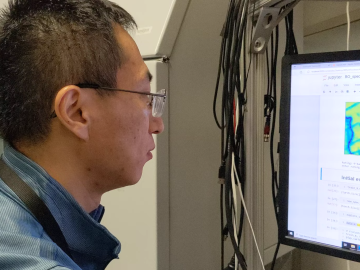
To capitalize on AI and researcher strengths, scientists developed a human-AI collaboration recommender system for improved experimentation performance.
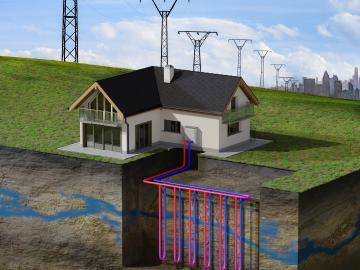
A modeling analysis led by ORNL gives the first detailed look at how geothermal energy can relieve the electric power system and reduce carbon emissions if widely implemented across the United States within the next few decades.
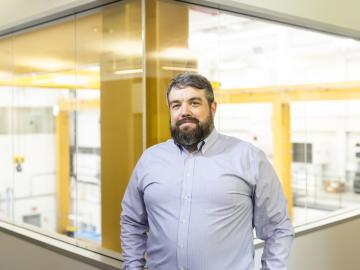
The American Society of Heating, Refrigeration and Air-Conditioning Engineers, or ASHRAE, selected Jason DeGraw, a researcher with ORNL, as one of 23 members elevated to Fellow during its 2024 winter conference.
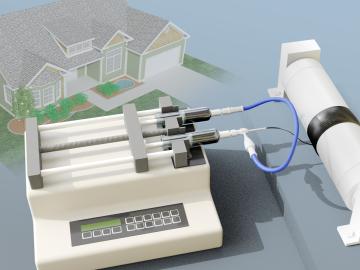
ORNL researchers have developed a novel way to encapsulate salt hydrate phase-change materials within polymer fibers through a coaxial pulling process. The discovery could lead to the widespread use of the low-carbon materials as a source of insulation for a building’s envelope.
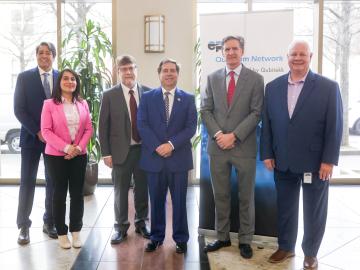
EPB, ORNL announce plans for research collaborative focused on energy resilience, quantum technology
EPB and ORNL marked 10 years of collaboration with the announcement of the new Collaborative for Energy Resilience and Quantum Science. The new joint research effort will focus on utilizing Chattanooga’s highly advanced and integrated energy and communications infrastructure to develop technologies and best practices for enhancing the resilience and security of the national power grid while accelerating the commercialization of quantum technologies.
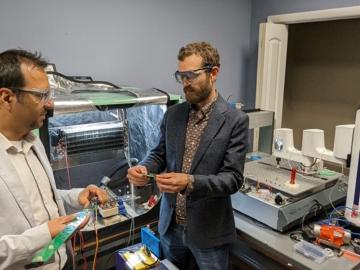
Four ORNL teams and one researcher were recognized for excellence in technology transfer and technology transfer innovation.
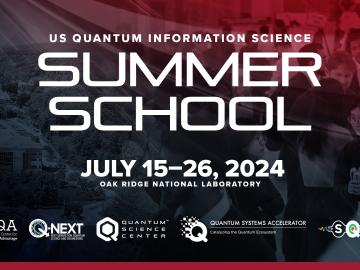
From July 15 to 26, 2024, the Department of Energy’s Oak Ridge National Laboratory will host the second U.S. Quantum Information Science, or QIS, Summer School.
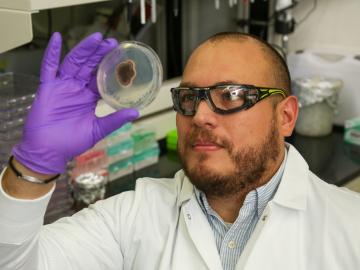
New computational framework speeds discovery of fungal metabolites, key to plant health and used in drug therapies and for other uses.
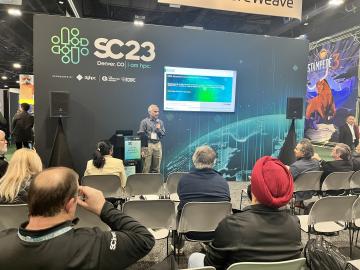
ORNL’s successes in QIS and its forward-looking strategy were recently recognized in the form of three funding awards that will help ensure the laboratory remains a leader in advancing quantum computers and networks.
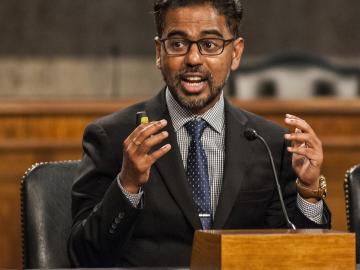
In summer 2023, ORNL's Prasanna Balaprakash was invited to speak at a roundtable discussion focused on the importance of academic artificial intelligence research and development hosted by the White House Office of Science and Technology Policy and the U.S. National Science Foundation.


